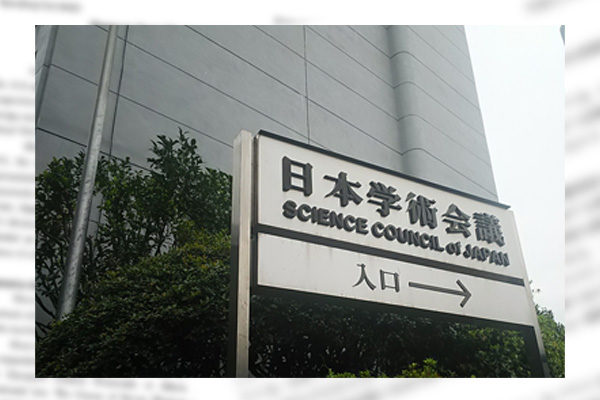On October 2, the certificates of appointment for new members of the Science Council of Japan were presented at the Prime Minister’s Office, inaugurating a new SCJ leadership headed by Mamoru Mitsuishi, a professor emeritus of mechanical engineering at the University of Tokyo. The newly-elected SCJ president said he would continue to request the appointment of six scholars as SCJ members that was rejected by former Prime Minister Yoshihide Suga three years ago. Mitsuishi’s statement indicates left-wing ideology still dominates the SCJ. Let me cite recent examples that indicate the negative effects of the SCJ’s anti-nuclear and anti-military ideology.
Anti-nuclear ideology remains unchanged
First, the SCJ failed to publish any opinion based on scientific knowledge regarding the ocean release of treated water from Tokyo Electric Power’s Fukushima Daiichi Nuclear Power Station. Despite the approval by the International Atomic Energy Agency for the safety of treated water, China has vehemently opposed the release and banned seafood imports from Japan. We can detect behind the SCJ’s silence its anti-nuclear ideology and its possible diffidence toward China as its research exchange partner.
Second, an SCJ committee on September 26 recommended that the outdated SPEEDI (System for Prediction of Environmental Emergency Dose Information) system that predicts the spread of radioactive materials be used for the evacuation of people in the event of a nuclear accident.
The Nuclear Regulation Authority has decided not to use the SPEEDI system in the event of a nuclear disaster. This is because the system, which calculates radioactive emissions based on the conditions of the nuclear reactor core hit by an accident and follows a complicated analytical process using dispersion simulations depending on weather, is known for its negative performance in which the system rapidly changed the prediction of radioactive material dispersion, confused the evacuation instruction chain of the administrative authorities, and resulted in the deaths of elderly people forced to evacuate during the Fukushima accident.
Nuclear power plants that have been restarted with many safety measures in place are equipped with filter vents that remove radioactive materials from emissions safely in the event of an unexpected accident. If the filter vent is activated to prevent the radiation dose in the air from rising, people within 5-30 kilometers from a nuclear power plant may evacuate indoors. Severe accident analysis has made great strides, allowing a radiation monitoring post to verify the activation of the filter vent. The SCJ that is fixated on anti-nuclear power would not admit the progress.
Rejection of military research behind Japan’s decline in science & technology
Third, the SCJ’s prohibition of military research is one of the factors behind Japan’s decline in science and technology research. According to the Science and Technology Indicators 2023 released by the Ministry of Education, Culture, Sports, Science and Technology in August, China ranked top in the number of scientific papers cited with international attention in three years from 2019 to 2021, the United States ranked second, Britain third, Germany fourth, and Japan 13th. In 2000, the United States ranked top, Britain second, Germany third, Japan fourth, and China 10th. Japan alone saw its rank falling dramatically.
In the United States, Europe, and China, military-civilian research cooperation has made great achievements. Science and technology in cutting-edge fields such as aerospace, high-performance semiconductors, quantum computers, advanced communication networks, artificial intelligence, and virus research is rapidly advancing with military and civilian research going hand in hand. In Japan, however, the SCJ continues to ban military research and hinder the progress of science and technology even at a time when citizens become aware of the importance of national security due to Russia’s aggression against Ukraine. The SCJ betrays Japan’s slogan of a science and technology powerhouse.
Tadashi Narabayashi is a professor emeritus of Hokkaido University and a director at the Japan Institute for National Fundamentals.


